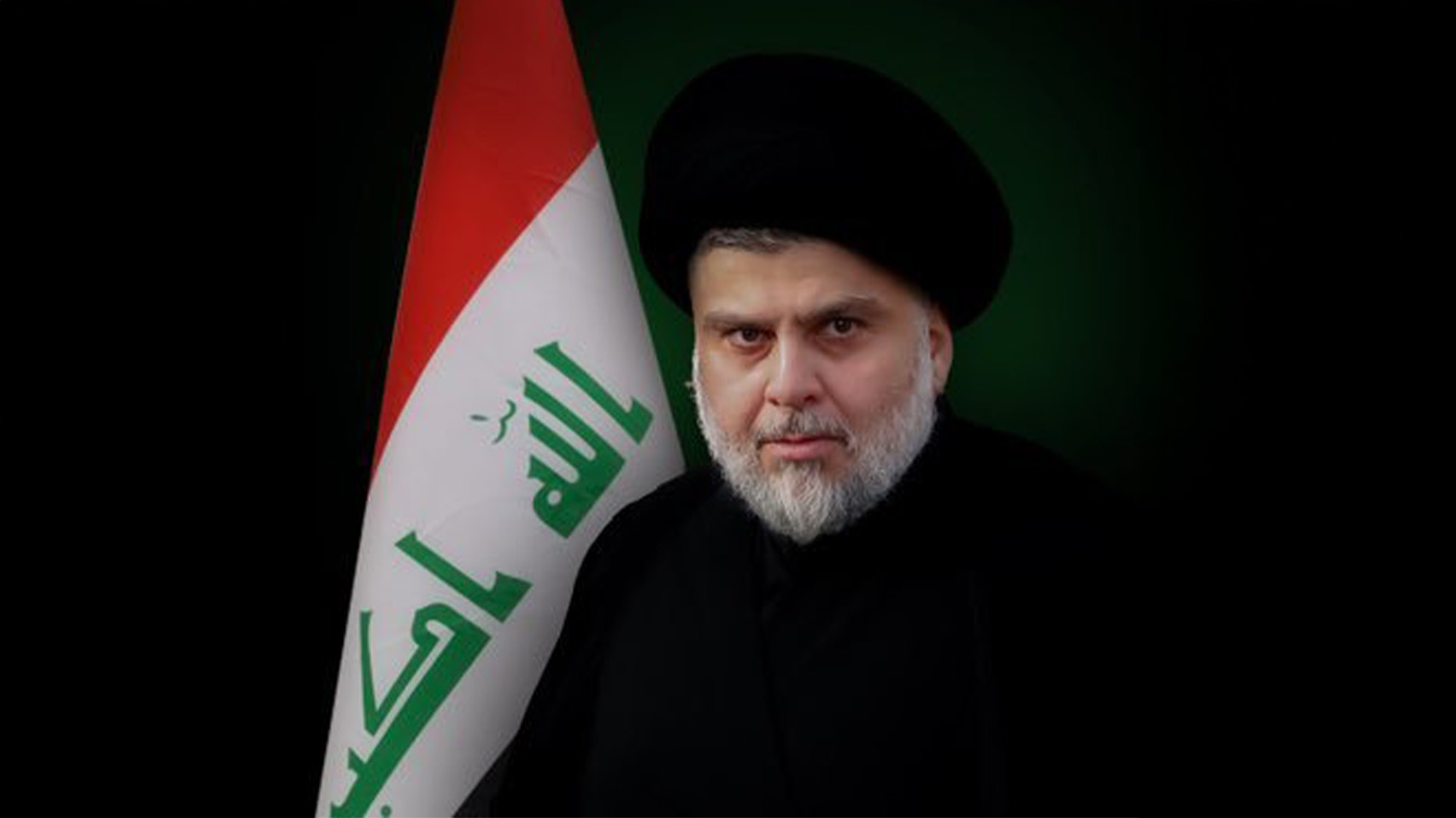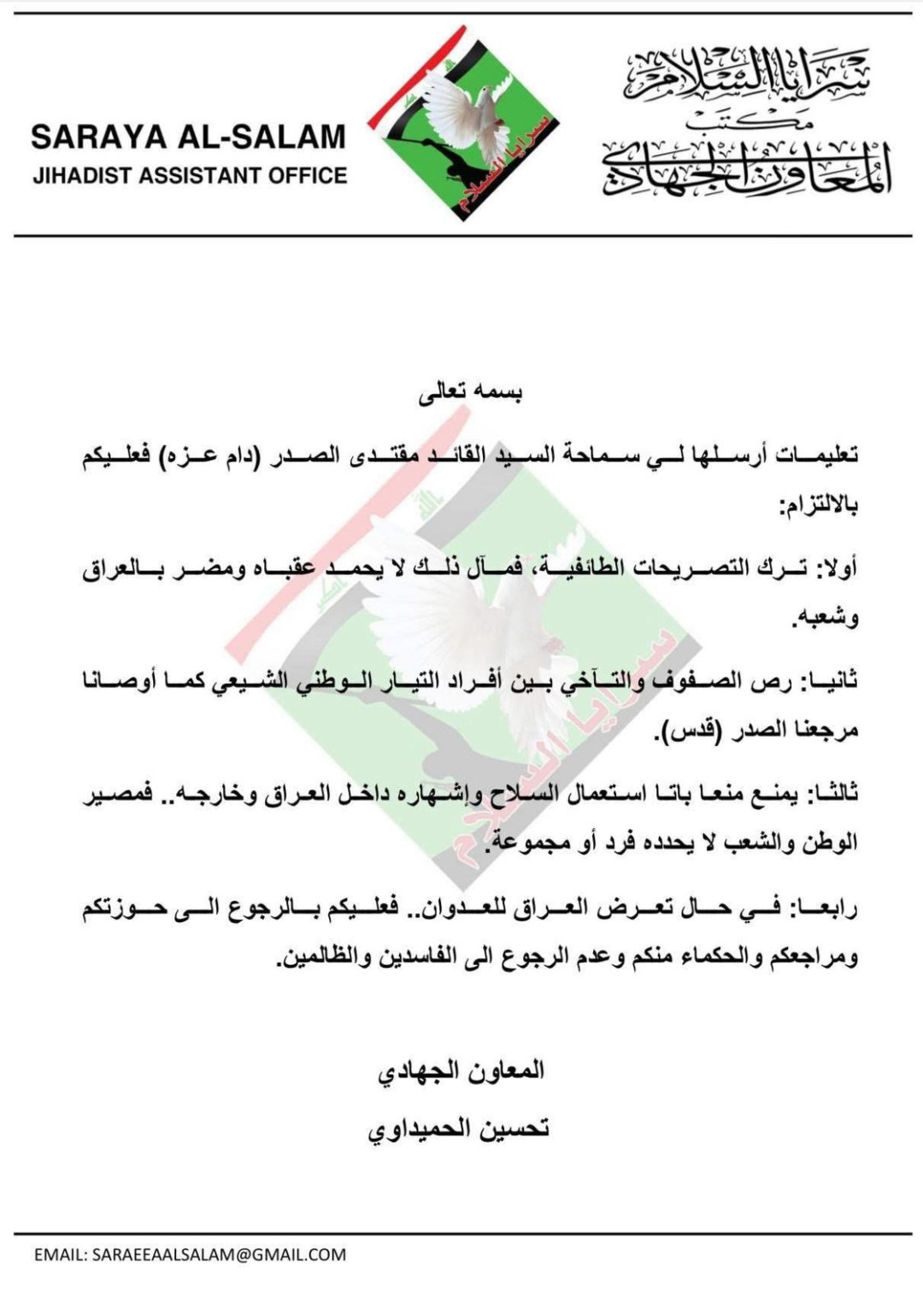Sadr Orders Saraya Al-Salam to Refrain from Armed Actions Amid Regional Tensions
Sadr also emphasized that no individual or faction has the right to determine Iraq’s fate, stating, “The use and display of weapons, both inside and outside Iraq, are strictly prohibited.

ERBIL (Kurdistan24) – Influential Iraqi cleric Muqtada al-Sadr has issued strict directives to his Saraya al-Salam militia, barring them from carrying weapons inside or outside Iraq and urging them to seek guidance from religious authorities in the event of external aggression against the country, a senior militia official announced on Wednesday.
Tahseen Al-Hamidawi, the jihadist assistant of Saraya al-Salam, confirmed that Sadr’s instructions include prohibiting sectarian rhetoric, warning that such statements could have severe repercussions on Iraq’s stability and unity.
“One of the key directives is to abandon sectarian rhetoric, as its consequences will be disastrous for Iraq and its people,” Hamidawi stated in a press release.
Sadr also emphasized that no individual or faction has the right to determine Iraq’s fate, stating, “The use and display of weapons, both inside and outside Iraq, are strictly prohibited. The destiny of the nation and its people is not to be decided by any individual or group.”
He further advised that in the case of external aggression, members of Saraya al-Salam should turn to religious scholars and wise leaders for guidance rather than aligning with corrupt or oppressive forces.
Sadr’s directives come at a time of heightened regional volatility, as the United States continues its military campaign against Iran-backed Houthi positions in Yemen, aiming to curb the group’s aggression against international maritime trade routes in the Red Sea.
Read More: Red Sea in Flames: U.S. Strikes Back as Houthi Rebels Escalate Attacks on Global Shipping
This escalation follows Israel’s resumption of airstrikes on Gaza after Hamas violated a temporary truce by failing to release the Israeli hostages as agreed upon, reigniting hostilities and leading to significant casualties. Israel has defended its actions as necessary to dismantle Hamas' military infrastructure and ensure the safety of its citizens.
The renewed conflict has raised concerns about broader regional instability, with some Western media reports warning that Iraq could be drawn into the turmoil, particularly given U.S. warnings to Iran over its support for the Houthis.
Additionally, the U.S. Secretary of Defense has reportedly warned Iraqi Prime Minister Mohammed Shia’ Al-Sudani, during their recent phone call, against any military actions by the Iraqi militias targeting U.S. forces or their allies in the region, cautioning that such moves would trigger American retaliatory strikes against the Iraqi militias.
In light of these developments, Iraqi militias allied with Tehran have reportedly been placed on high alert, fearing potential U.S. strikes on their positions in Iraq. According to recent reports, these factions have been bolstering security measures, relocating personnel, and limiting public movements to avoid detection.
Read More: Iraqi Militias on High Alert After U.S. Strikes Against Houthi Positions in Yemen
Al-Sadr, a powerful but unpredictable figure in Iraqi politics, has long sought to position himself as a nationalist leader advocating for Iraq’s sovereignty, often distancing himself from pro-Iran factions. His latest directives appear to reinforce his stance against external interference and internal militia-driven instability.
Sadr’s call for restraint, particularly regarding sectarianism and unauthorized armed action, suggests an effort to prevent further tensions in Iraq amid fears of a wider regional confrontation. However, with ongoing U.S.-led operations against the Houthis and the renewed Israeli offensive in Gaza, the situation remains fluid, and Iraq’s role in the evolving conflict will be closely watched.
